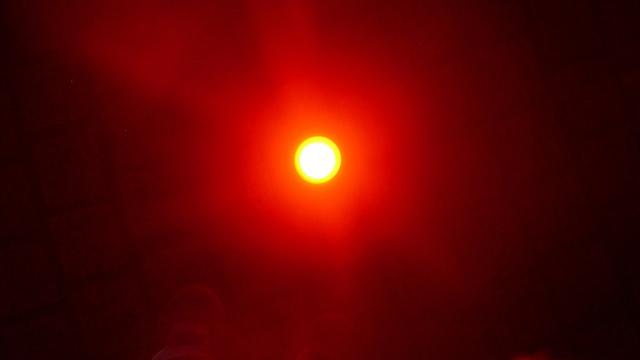In research that adds new truth to the phrase “every cloud has a silver lining”, scientists are reporting that sulfate aerosol emissions have offset roughly a third of global warming over the Earth’s land, by scattering sunlight back into space.
What’s more, reductions in European air pollution may be contributing to the rapid Arctic warming we’re witnessing right now.
This isn’t exactly a novel concept — in fact, the idea of seeding clouds with sulfate particles to cool the planet was first popularised by geoengineering proponents years ago, garnering enough mainstream attention to inspire climate disaster movies like Snowpiercer. The geoengineering concept, while highly controversial, stems from the observation that in Earth’s geologic past, sulfate emissions from volcanic eruptions seem to be tied to global cooling episodes. But the degree to which air pollution can offset carbon pollution has never been quantified, until now.
Writing in the journal Nature Geoscience, Yale geophysicist Trude Storelvmo and colleagues analysed data on atmospheric carbon concentrations, temperature, and surface radiation at 1300 sites around the world. Using a statistical tool to separate temperature changes from greenhouse gas emissions and aerosol emissions between 1964 and 2010, the researchers estimate that aerosol particles, predominately sulfate, have temporarily masked some 30 per cent of continental warming over the last half century.
Moreover, the authors predict we’ll reach the dreaded-but-arbitrary 2C warming benchmark when atmospheric carbon concentrations double over their pre-industrial level, something that’s expected to happen this century.
Sulphur dioxide, a gas produced by coal and oil-fired power plants, factories and combustion engines, is broken down in our atmosphere into tiny aerosol particles called sulfates. In polluted regions, these particles can number in the thousands per square inch of air, acting like a microscopic screen and blocking out some of the Sun’s rays.
But despite the fact that our planet desperately needs a little sunscreen right now, we don’t really want to be adding sulfate particles to the atmosphere. Sulphur dioxide is also linked to acid rain, which kills forests, damages soil and harms aquatic ecosystems. The discovery of acid rain in the 1960s and ’70s prompted a spate of new environmental regulations, and sulphur dioxide emissions have been falling in the west ever since.
It feels truly ironic that by cleaning up our air, humans may be unleashing additional global warming. A companion paper, also published in Nature Geoscience today, uses models to show that thirty years of reduced sulfate emissions over Europe could have contributed an additional 0.5C of global warming over the Arctic. “As you reduce sulfate emissions, you warm the atmosphere, and that energy can be transported [from Europe] to the Arctic,” said Thorsten Mauritsen, a researcher at the Max Planck Institute for Meteorology who was not involved with the study.
But to those who’d argue that we should be pumping aerosols into the air to shield our planet from the scorching sun, a word of warning: the cooling effect is short-lived. Aerosol particles typically only reside in the atmosphere for days to weeks, so as soon as we stop releasing them, any benefits disappear.
The carbon dioxide we pump into our atmosphere, however, is expected to last for centuries, and its effects will be borne out over thousands of years. So we’ve either got to devise a much more permanent heat shield — I personally like Futurama’s idea of blasting the Earth into a slightly wider orbit around the Sun — or we’ve got to clean up our act.
Image: Camilla Cannarsa/Flickr
